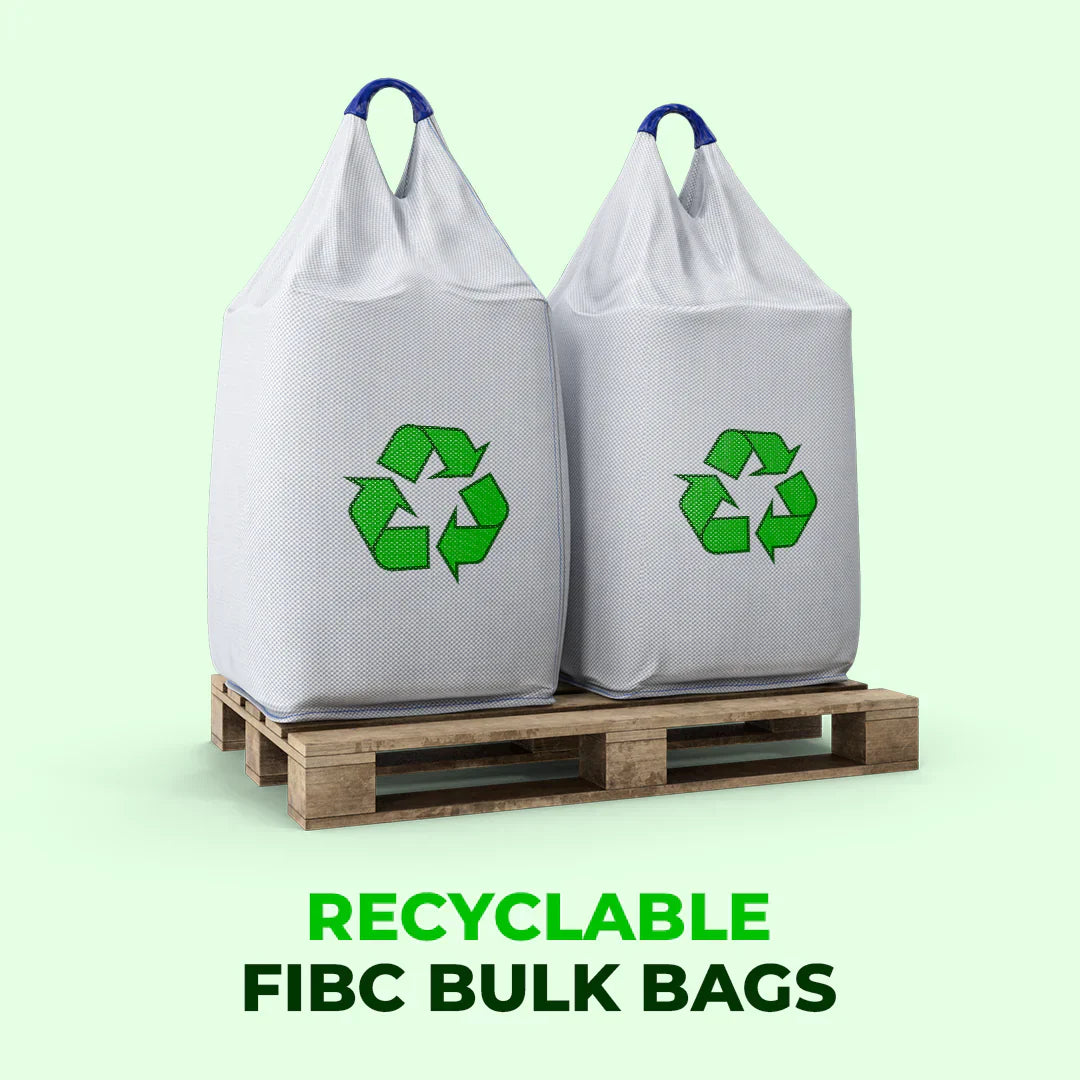Pacific Packaging Australia is Leading the Way Towards a Greener Tomorrow through Sustainable FIBC/Bulk Bags Recycling

Recycling FIBC Bulk Bags: A Step Towards a Greener Future
At Pacific Packaging Australia, sustainability isn’t just a commitment — it’s a principle that drives how we do business. As a proudly Australian-owned packaging supplier, we’re passionate about reducing our environmental footprint through smarter recycling and reuse practices.
Why Recycling Matters
Recycling is essential to environmental protection. It helps conserve natural resources, reduce waste, and limit pollution — all while extending the lifecycle of materials like polypropylene.
- Conserves resources: Reduces the need for virgin raw materials.
- Reduces energy use: Recycling polypropylene uses less energy than producing new plastic.
- Minimises landfill waste: Less plastic ends up in landfill.
- Improves environmental outcomes: Fewer emissions and less pollution.
Recyclable Polypropylene Material
Our FIBC bulk bags are manufactured from 100% recyclable polypropylene (PP). This durable and lightweight material can be collected, processed, and repurposed into new plastic products. In fact, recycling just one FIBC bag can save up to 7.4 cubic yards of landfill space per tonne of plastic.
How to Choose the Right Bag for Reuse
Not all bulk bags are created equal — and not all are safe for reuse. Bags are typically graded based on condition:
- Grade A: Clean and bright white
- Grade B: Mostly white with minimal marks
- Grade C: Coloured or visibly dirty
Choose FIBC bags that are rated for reuse and meet FIBCA (Flexible Intermediate Bulk Container Association) guidelines. This ensures safe handling and consistent performance.
Signs a Bag Should Be Rejected
- Damaged or frayed lifting loops
- Contamination on the bag’s exterior
- Dampness, mould, or mildew
- Embedded wood splinters from pallets
Our 5-Step Reuse & Recycling Process
- Reject: Remove any bags that don’t meet quality standards.
- Clean: Ensure bags are free from dust or residue.
- Recondition: Repair components like loops or seams as needed.
- Track: Log the usage history of each bag.
- Test: Perform strength tests before reusing bags.
When Bags Reach End-of-Life
Once bags can no longer be safely reused, they go through a structured recycling process:
- Collection: Sorted by grade (A, B, or C).
- Cleaning & Sorting: Zips, straps, and contaminants are removed.
- Shredding: Bags are shredded into flakes.
- Separation: Materials sorted by colour, melting point, and density.
- Compounding: Melted and pelletised into usable plastic feedstock.
Did you know? Less than 1% of polypropylene is recycled globally. The rest ends up in landfill or as environmental waste.
Choose Sustainability with Pacific Packaging Australia
Our recyclable FIBC bags help reduce waste while delivering the same strength, volume, and safety you expect. Let’s build a greener future, one bulk bag at a time.
Need help selecting the right FIBC bag? Contact our team and we’ll guide you to the ideal option for your product, budget, and sustainability goals.
📞 Call us: 1300 234 235
📧 Email us: sales@pacificpackaging.com.au
Pacific Packaging Australia
Reshaping Industrial Packaging — sustainably.
